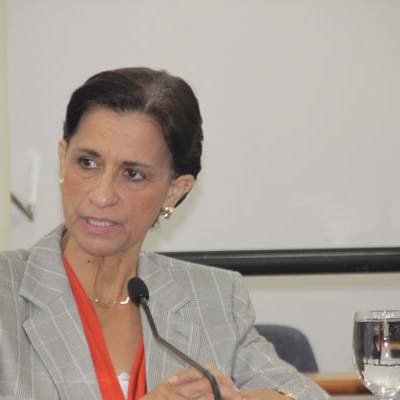Mutual agreement triggers ridicule and serious concerns

PHILIPSBURG — The mutual agreement the governments of St. Maarten, Aruba and Curacao singed on April 4 with State Secretary of Kingdom Relations Alexandra van Huffelen has encountered ridicule and severe criticism from different sources. UD-MP Sarah Wescot-Williams expressed her concerns in a press release and René Zwart, publisher of dossierkoninkrijksrelaties.nl published a sarcastic Kadushi-column about the event.
The parliaments of the countries have no say in this matter because the mutual agreement is a decision taken by the respective governments, at least, by its representatives. Silveria Jacobs was present at the signing for St. Maarten, Gilmar Pisas for Curacao and Evelyn Wever-Kroes for Aruba.
MP Wescot-Williams stated in a press release that the mutual agreement is “shrouded in secrecy” and that she has serious reservations. “There are no restrictions. An overzealous government can quickly sign off without consideration for our democratic status.”
Wescot-Williams refers to the country package to which Prime Minister Jacobs attached her signature in 2020. “That actually sanctioned the COHO institution by kingdom law. This act by the governments would have been illegal.”
The MP asked the prime minister in January to consult with the parliament before approving it, expressing concerns about the settlement of disputes, capacity building and the period of engagement.
While MP Wescot-Williams is full of questions, René Zwart, the editor of dossierkoninkrijksrelaties.nl was firing on all cylinders in one of his Kadushi-column. “The Netherlands is giving away €120 million ($130.8 million) to governments that are seasoned in not abiding by agreements,” he wrote.
That the mutual agreement is based on principles like equality, ownership and commonality is, to say the least, remarkable according to the columnist: “While Jacobs cherished the commonality, her parliament appointed a committee that is going to prepare a referendum about independence. And ownership? Were the countries not already since 1954 the owners of their education, healthcare and tax inspectorate, to name just a few seriously neglected properties?”
Also remarkable: while State Secretary Van Huffelen expressed her satisfaction with the mutual agreement, she almost simultaneously sent a letter to the Dutch parliament saying that she has concerns about the execution of the country packages because the countries, with Curacao in the lead, postpone decisions and hold back crucial information.
For former VVD-parliamentarian André Bosman there is nothing new under the sun: “One way traffic. Always money in that direction. We will never learn.”
René Zwart is brutal in his conclusion: The mother of all fairytales is that the mutual agreement is going to improve the lives of citizens. That’s what they said before 10-10-10. We are now thirteen years later an there is poverty everywhere and healthcare and security are in a bad state.”
At least, Zwart observes, former state secretary Raymond Knops had the courage to say that the countries are unable to handle their autonomy. “Successive governments are doing dirty business with the mafia, they make money under the table and they provide large income for family and friends.”
The mutual agreement that triggered these reactions was signed into law on April 4. The agreement expires after four years, so on April 4, 2027. The text of the agreement makes clear that there is no role for the parliaments of the countries. The ministers of general affairs and the Dutch minister of home affairs report after three years about the effectiveness of the agreement. That evaluation will be sent to the parliaments but the regulation does not say anything about what the parliaments are supposed to do with it.
The objective of the agreement is to promote cooperation between the respective governments with respect to the reforms identified in the individual country packages. The parliaments will be informed about the progress with the execution of these packages. When there is no consensus about such reports, the ministers appoint a mediator whose task will be to reach an agreement between the parties.
The governments can make changes to their country packages, but changes have to be submitted to the parliaments. A parliament can express objections and desired changes to an amendment to the minister of general affairs, but there is no provision for parliament to reject it.
The text of the mutual agreement remains in the meantime deceivingly optimistic: “The objective is to execute reform in the public sectors of the countries in order to increase their economic resilience and administrative power. The reforms take place in a responsible manner, considering the social-economic conditions and capacity of each country.”


























